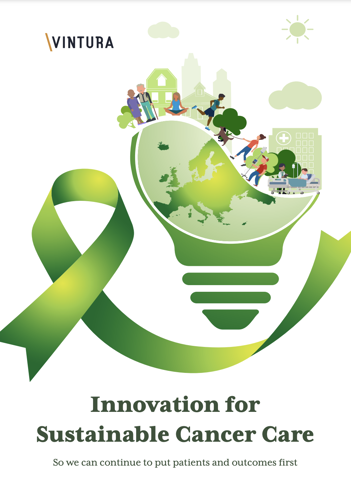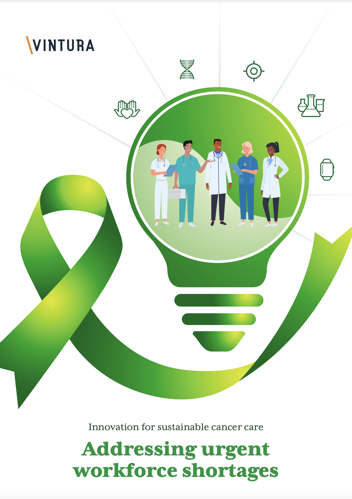Innovation for Sustainable Cancer Care
By using best practice across the cancer pathway we can alleviate the pressures, improve access to cancer care in a sustainable way, and help achieve the goals of Europe’s Beating Cancer Plan and the Mission on Cancer.
Over the last 30 years, there have been significant improvements for people with cancer. These improvements have been driven by positive changes to several factors, including research and development, prevention, screening, better and earlier diagnosis, and improved treatment. As well as the obvious benefits for patients and their loved ones, these investments have a proven benefit for the workforce and the economy, as healthier people live more active and fulfilling lives.
However, cancer diagnoses are becoming more common, largely because of a growing, ageing population. Combined with the improved chance of living longer with cancer, this increases the number of cancer diagnoses, the total number of cancer patients and the overall demand for cancer care. More than five new cancer diagnoses are currently made every minute across Europe, with cancer set to replace cardiovascular disease as the leading cause of death in the EU by 2035. Growing care needs put pressure on healthcare budgets. Currently, the annual economic impact of cancer in Europe equals 100 billion euros – and this sobering figure will only increase if we continue on the same path. The healthcare workforce is also under enormous pressure, which in turn has a negative effect on patients. By 2030, there will be a shortage of some 4.1 million health workers in Europe and the UK.
By choosing to redesign cancer care through smart investments in innovation, healthcare decision-makers can create a different path which ensures efficiency in cancer care, and sustainable resource use to promote better outcomes for patients, professionals, and the planet.

